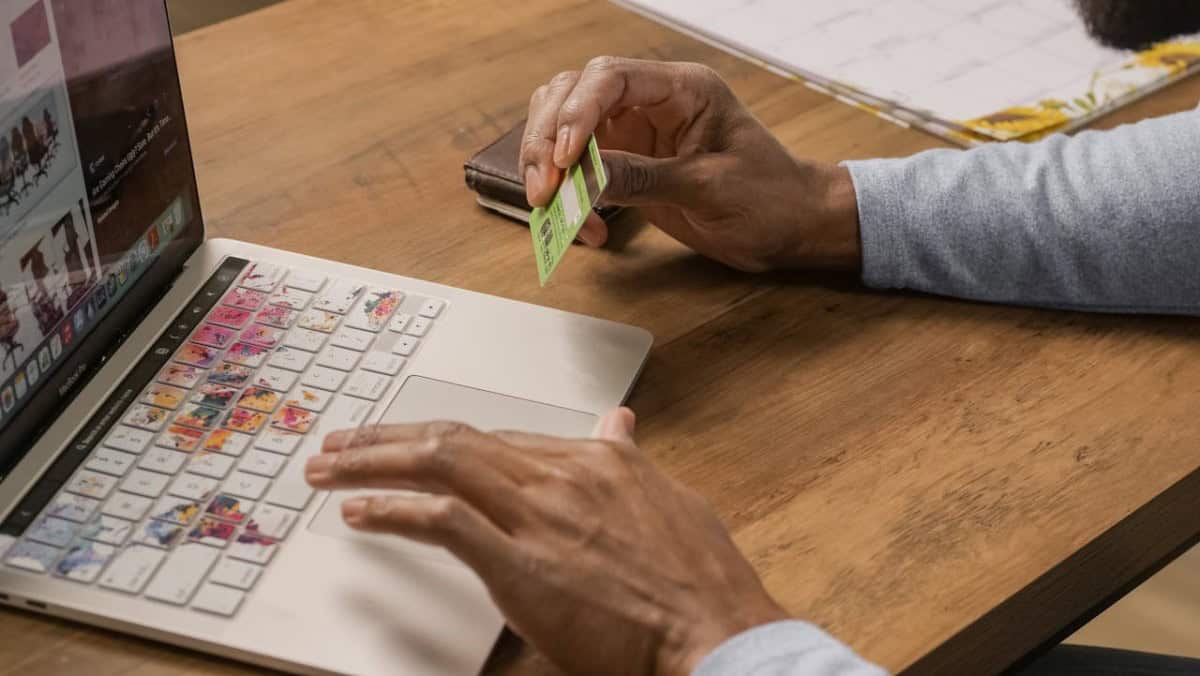
LevelUp Review
- 22nd Nov, 2024
- | By Linda Mae
- | Reviews
LevelUp, established in 2011 by Boston-based startup SCVNGR, emerged as an innovative mobile payment and ordering platform designed to streamline transactions between consumers and merchants. By allowing users to link their credit or debit cards to a unique QR code within the LevelUp app, it enabled quick and secure payments at participating businesses. This approach not only simplified the payment process but also integrated customer loyalty programs, offering users incentives such as “First-Time Visit Specials” and credits for repeat purchases. Lets read more about LevelUp Review.
In 2018, LevelUp was acquired by Grubhub for $390 million, marking a significant development in the mobile payment industry. This acquisition aimed to enhance Grubhub’s capabilities by incorporating LevelUp’s technology, thereby improving the ordering and payment experiences for both restaurants and customers.
LevelUp’s importance in the mobile payment sector is attributed to its easy-to-use interface and the incorporation of customer engagement features into payment processing. Through providing merchants with in-depth analytics and reporting, it gave them valuable information on customer behavior to help customize marketing strategies effectively. Moreover, LevelUp’s feature for ordering ahead enabled customers to place their orders ahead of time, decreasing wait times and improving overall satisfaction.
Despite its innovative contributions, the LevelUp app was discontinued on September 30, 2021. However, its legacy persists through the integration of its technology into Grubhub’s platform, continuing to influence the mobile payment landscape by offering seamless and efficient transaction solutions.
Company Background: History and Evolution of LevelUp | LevelUp Review
LevelUp, founded in 2011 by Boston-based startup SCVNGR, emerged as a pioneering mobile payment and ordering platform aimed at enhancing transactions between consumers and merchants. Initially, it operated as a daily deals platform but swiftly transitioned to focus exclusively on mobile payments, reflecting its adaptability to market demands.
The LevelUp app enabled users to connect their credit or debit cards to a special QR code, making it easy and safe to make payments at select stores. This new development not just made paying easier, but also incorporated customer loyalty initiatives like “First-Time Visit Specials” and rewards for repeat buying, making it more appealing. By 2013, it had amassed about 200,000 users and established partnerships with 3,000 companies, showcasing its increasing impact in the mobile payment industry.
In July 2018, Grubhub, a leading online food delivery platform, announced its acquisition of LevelUp for $390 million. This strategic move aimed to enhance Grubhub’s integration with restaurants, particularly by incorporating LevelUp’s technology into its point-of-sale systems. The acquisition enabled Grubhub to offer a more comprehensive ordering and fulfillment solution, benefiting both restaurants and customers through improved efficiency and user experience.
Post-acquisition, LevelUp’s technology was integrated into Grubhub’s platform, leading to the discontinuation of the standalone LevelUp app on September 30, 2021. This integration allowed Grubhub to leverage LevelUp’s expertise in mobile payments and customer engagement, thereby strengthening its position in the competitive food delivery and mobile payment industries. The merger exemplifies how strategic acquisitions can drive innovation and enhance service offerings in the rapidly evolving digital marketplace.
Core Features of LevelUp
LevelUp offers a suite of features designed to enhance the payment experience for both consumers and merchants.
Mobile Payment Solutions: LevelUp enables users to link their credit or debit cards to a unique QR code within its app, facilitating quick and secure payments at participating businesses. This method streamlines transactions, allowing customers to pay by simply scanning their QR code at the point of sale.
Customer Engagement Tools: Beyond payment processing, it provides tools to boost customer engagement. Merchants can implement loyalty programs, offering incentives such as “First-Time Visit Specials” and credits for repeat purchases. These features encourage customer retention and foster brand loyalty.
Data Analytics and Reporting: LevelUp provides merchants with in-depth analytics and reporting features. Businesses obtain important information about purchasing habits by monitoring customer behavior and transaction patterns. This approach using data allows merchants to customize marketing tactics and efficiently improve operations.
Order Ahead and Digital Ordering Capabilities: The platform’s order-ahead functionality allows customers to place orders in advance through the app, reducing wait times and enhancing convenience. This feature is particularly beneficial for busy establishments, as it streamlines the ordering process and improves overall customer satisfaction.
Integration with POS Systems: It integrates seamlessly with various POS systems, enabling businesses to incorporate mobile payments without overhauling existing infrastructure. This compatibility ensures a smooth transition to digital payment solutions, minimizing disruptions and facilitating efficient operations.
User Experience of LevelUp
It has been recognized for its user-friendly interface and seamless integration into daily transactions.
Interface Design and Usability
The LevelUp app features a clean and intuitive design, allowing users to link their payment methods and generate a unique QR code for transactions effortlessly. This straightforward approach simplifies the payment process, enabling quick and secure payments at participating businesses. The app’s layout is designed to minimize cognitive load, ensuring that users can navigate through its features without confusion.
Customer Feedback and Satisfaction Levels
In general, users have been satisfied with the convenience and efficiency of LevelUp. The capacity to easily make payments and access loyalty rewards via the app has been greatly valued. Nonetheless, some users have experienced technical problems like periodic malfunctions or challenges with scanning QR codes, affecting their overall experience. In spite of these worries, the general feedback skews positive, emphasizing the app’s ability to simplify payment procedures.
Merchant Experiences and Testimonials
Merchants have found LevelUp beneficial in enhancing customer engagement and streamlining operations. The integration of mobile payments with loyalty programs has enabled businesses to attract and retain customers more effectively. Additionally, the detailed analytics provided by LevelUp offer valuable insights into customer behavior, assisting merchants in tailoring their services and marketing strategies. Some merchants have noted challenges with customer support and technical issues, but many acknowledge the platform’s positive impact on their business operations.
Security Measures of LevelUp
Ensuring the security of financial transactions is paramount for any mobile payment platform. It has implemented several measures to protect user data and maintain trust among its users and merchants.
Data Encryption and Storage Practices
LevelUp employs robust encryption protocols to safeguard sensitive information during transmission and storage. By utilizing advanced encryption standards, the platform ensures that user data, including payment details, is securely transmitted between devices and servers. This approach minimizes the risk of data breaches and unauthorized access. Additionally, it adopts secure storage practices, ensuring that sensitive information is stored in encrypted formats, further enhancing data protection.
Compliance with Industry Standards
Following industry standards is essential to uphold a secure payment environment. It adheres to the Payment Card Industry Data Security Standard (PCI DSS), which sets out security criteria for companies that deal with credit card data. LevelUp shows its dedication to safeguarding user information and ensuring a secure payment process by meeting these criteria. Adhering to PCI DSS includes putting in place actions such as securing networks, safeguarding cardholder information, and consistently monitoring and testing networks.
Measures Against Fraud and Unauthorized Transactions
To combat fraud and unauthorized transactions, LevelUp has implemented several security measures:
Tokenization: This process replaces sensitive payment information with unique tokens, rendering the original data inaccessible to unauthorized parties. Even if intercepted, these tokens are meaningless without the corresponding decryption mechanism.
Multi-Factor Authentication: LevelUp incorporates MFA to verify user identities, adding an extra layer of security. This approach requires users to provide multiple forms of verification before accessing their accounts or completing transactions, reducing the likelihood of unauthorized access.
Real-Time Monitoring: The platform continuously monitors transactions for unusual patterns or behaviors that may indicate fraudulent activity. This proactive approach enables the swift detection and prevention of potential security threats.
It aims to offer a safe and dependable mobile payment experience to its users and merchants by incorporating these security measures. The dedication of the platform to safeguarding data and preventing fraud highlights its focus on upholding trust and integrity in the mobile payment sector.
Pricing and Fees
LevelUp offers a competitive pricing structure designed to appeal to merchants seeking cost-effective mobile payment solutions.
Transaction Fees for Merchants: LevelUp charges merchants a flat transaction fee of 1.95% per transaction, which is lower than the industry average. This rate is particularly advantageous for businesses with high transaction volumes, as it reduces the overall cost of payment processing. Additionally, LevelUp operates on a month-to-month service agreement without any cancellation fees, providing flexibility for merchants.
Costs Associated with Hardware and Setup: To facilitate mobile payments, LevelUp requires merchants to invest in specific hardware. The company offers a LevelUp scanner for $50 or a LevelUp tablet for $100. These are one-time costs, and there are no equipment leasing fees. This straightforward pricing model allows merchants to adopt LevelUp’s system without significant upfront expenses.
Comparison with Competitors in the Mobile Payment Sector: LevelUp’s pricing is competitive in comparison to other mobile payment providers. For example, typical credit card processors typically impose a fee of about 2.9% per transaction, in addition to a set fee. On the other hand, LevelUp’s low 1.95% fee provides significant cost reduction. Furthermore, LevelUp stands out from competitors by not having monthly or annual fees and offering flexible service agreements, giving customers more benefits.
Market Reach and Adoption
LevelUp has established a significant presence in the mobile payment industry, marked by a substantial number of participating merchants and widespread geographic distribution.
Number of Participating Merchants and Locations
As of 2014, LevelUp was accepted at over 14,000 locations, indicating a broad adoption among businesses seeking to enhance their payment systems. This extensive network includes a diverse range of merchants, from local cafes to larger restaurant chains, reflecting LevelUp’s versatility and appeal across various business sizes and types.
Geographic Distribution and Market Penetration
LevelUp’s services have been implemented in multiple major cities across the United States. Key markets include Boston, Chicago, New York City, San Francisco, and Philadelphia, among others. This strategic geographic distribution has enabled LevelUp to penetrate diverse markets, catering to both urban centers and suburban areas. The platform’s adaptability to different market needs has contributed to its widespread acceptance and utilization.
User Base Statistics and Growth Trends
In 2013, around 200,000 users had joined LevelUp, showing an increasing interest among consumers in mobile payment options. The growth of the platform’s merchant network paralleled the expansion of its user base, demonstrating a direct link between merchant acceptance and consumer engagement. This upward trend highlights the growing need for convenient and efficient payment options among consumers.
Customer Support and Service
It has established a comprehensive customer support system to assist both users and merchants, aiming to ensure a seamless experience with its mobile payment platform.
Availability and Responsiveness of Support Channels
It provides various support options, such as phone assistance and an online customer service form, to quickly handle inquiries and problems. A dedicated account manager is assigned to every client, offering personalized assistance with a direct point of contact. This setup enables quick problem-solving and effective communication, demonstrating LevelUp’s dedication to delivering high-quality service.
Quality of Assistance Provided to Users and Merchants
The support quality offered by LevelUp is typically highly regarded. Merchants receive support on loyalty programs and effective business strategies, increasing their involvement with the platform. Users value the quick replies and efficient answers provided by the support team. Nevertheless, certain feedback highlights difficulties in contacting support agents during busy periods, implying the need for better management of high-volume periods.
Analysis of Common Complaints and Resolutions
While LevelUp maintains a positive reputation, certain complaints have been noted:
Technical Glitches: Some users have reported issues such as app crashes or difficulties during transactions. It addresses these by providing troubleshooting assistance and releasing timely updates to enhance app stability.
Customer Service Delays: A few merchants have experienced delays in receiving support during busy periods. It is working to improve response times by expanding its support team and optimizing internal processes.
Billing Issues: Instances of incorrect charges have been reported. It investigates these cases thoroughly, offering refunds or adjustments as necessary to resolve billing discrepancies.
Pros and Cons of LevelUp
LevelUp, as a mobile payment platform, offers a range of benefits to both consumers and merchants, while also presenting certain limitations that warrant consideration.
Advantages for Consumers
Convenience: It allows users to connect their credit or debit cards to a distinct QR code in the application, making it easier to make fast and safe payments at participating establishments. This simplifies the payment procedure by removing the requirement to have physical cards or cash on hand.
Loyalty Rewards: The platform integrates customer engagement tools, allowing consumers to earn rewards and discounts through loyalty programs offered by merchants. This incentivizes repeat business and enhances customer satisfaction.
Order Ahead Feature: LevelUp’s order-ahead functionality permits users to place orders in advance, reducing wait times and improving the overall dining or shopping experience.
Advantages for Merchants
Enhanced Customer Engagement: Merchants can implement customizable loyalty programs and targeted incentives, fostering stronger relationships with customers and encouraging repeat visits.
Data Analytics: It offers in-depth analytics and reporting tools, giving insights into customer behavior and transaction patterns. This information enables companies to make educated choices and customize marketing tactics successfully.
Integration with POS Systems: The platform integrates seamlessly with various point-of-sale systems, allowing merchants to incorporate mobile payments without overhauling existing infrastructure.
Limitations and Areas for Improvement
Limited Merchant Adoption: Despite its benefits, LevelUp’s acceptance is confined to participating merchants. Consumers may find it challenging to use the app universally, limiting its utility compared to more widely accepted payment methods.
Technical Issues: A few users have experienced intermittent technical issues, like trouble scanning QR codes or app crashes. These problems have the potential to disturb the payment procedure and might discourage users from using it further.
Customer Support Challenges: Feedback indicates that reaching support representatives during peak times can be challenging, leading to delays in issue resolution. Enhancing customer support responsiveness is an area for potential improvement.
Conclusion
LevelUp has positioned itself as a groundbreaking mobile payment platform by providing convenience, customer engagement features, and data-oriented insights. Although its partnership with Grubhub has increased its reach, there is room for improvement in technical stability and merchant adoption. In general, it continues to be a beneficial option, impacting the changing mobile payment environment.
Frequently Asked Questions
How does LevelUp ensure the security of transactions?
LevelUp uses advanced encryption and tokenization to secure transaction data. It complies with PCI DSS standards, ensuring sensitive payment information is protected during transmission and storage. Real-time monitoring and fraud detection further enhance security.
What are the costs involved for merchants to integrate LevelUp?
Merchants pay a flat transaction fee of 1.95%. Hardware costs include a LevelUp scanner ($50) or tablet ($100), with no additional setup fees. The pricing is transparent and competitive.
How can consumers find merchants that accept LevelUp payments?
Consumers can use the LevelUp app to locate participating merchants through the in-app directory or map feature.



